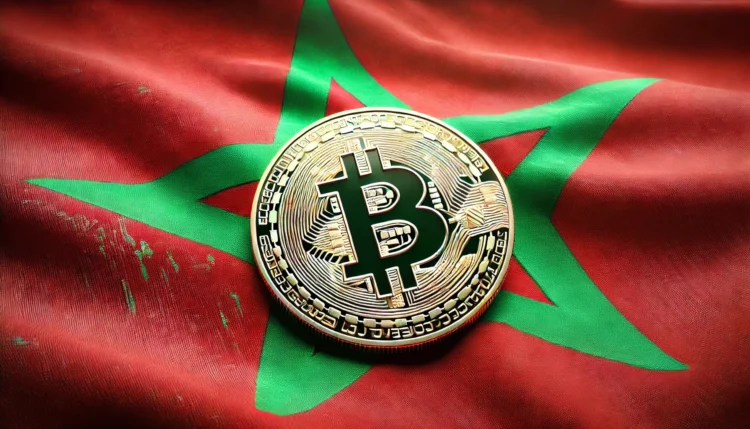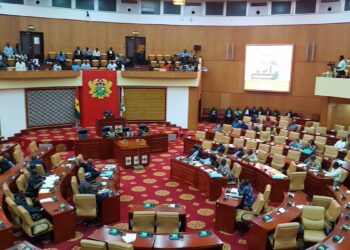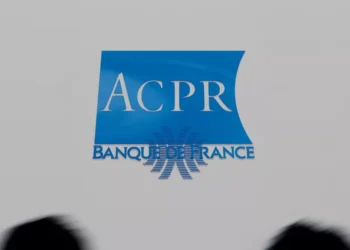Morocco made headlines when it announced a total ban on cryptocurrency use in 2017. Authorities in the African country cited concerns over risks like money laundering, terrorism financing, and the lack of consumer protections and regulatory oversight. At the time, this ban aligned with global scepticism about the volatile and unregulated crypto market, as the country aimed to protect its financial system from the risks of decentralization.
Fast forward to 2024, Morocco’s stance has shifted dramatically. The authorities are now working to reverse the ban and embrace cryptocurrency. Bank Al-Maghrib, the country’s apex bank, has drafted a law to regulate crypto assets, marking a significant step toward integrating the industry. Abdellatif Jouahri, the central bank governor, confirmed that the draft is under review and moving through the adoption process.
This shift isn’t just about undoing past policies—it’s more like the country is going all in. Kamal Youssefi, President of The Hashgraph Association, has praised Morocco’s progress in adopting distributed ledger technologies (DLT) as a major step toward digital transformation. But has it prompted this change? Why is Morocco now embracing an industry it once sought to shut down?
The Changing Global Crypto Landscape
Morocco’s pivot toward crypto reflects not only the global evolution of the digital asset industry but also the growing recognition of its economic potential. In recent years, countries that were once critical of crypto, such as China and Bolivia, have adopted nuanced regulatory approaches. Meanwhile, over 130 nations—including economic powerhouses like the U.S., China, and India—are actively exploring or piloting CBDCs.
In a recent speech, the country’s central bank governor, Abdellatif Jouahri, acknowledged the need to adapt to this changing landscape to remain competitive.
However, this shift isn’t solely about keeping up with global trends. The growth in the use of cryptocurrencies among Moroccan citizens has likely influenced the government’s decision.
Despite the ban, crypto activity in Morocco flourished in underground markets. By 2023, Morocco was ranked among the top 20 countries globally for crypto adoption, with Chainalysis highlighting significant grassroots engagement. Insider Monkey ranked the country 13th worldwide for Bitcoin usage in the same year. Bitcoin ownership, in particular, climbed steadily, with crypto ownership increasing from 2.4% in 2021 to 3.1% in 2022.
In essence, banning crypto didn’t eliminate its use. Instead, it pushed activity into informal and unregulated channels, creating risks for both users and the broader economy. This realization has likely fueled Morocco’s decision to establish a regulated framework, aiming to harness the benefits of digital assets while minimizing associated risks.
Potential Impact of Morocco’s Crypto Decision
One of the most significant opportunities presented by crypto legalization is its potential to enhance financial inclusion. Despite recent progress, around 42% of Morocco’s population remains unbanked as of 2024—a notable improvement from 28.4% in 2022 but still far from the globally accepted levels.
Cryptocurrencies, along with a potential CBDC, could provide rural populations with affordable and accessible financial tools for saving, investing, and conducting cross-border payments.
This is particularly critical in a country where traditional banking infrastructure often struggles to meet the needs of underserved communities. With smartphones becoming more accessible, crypto wallets could bridge the gap and enable wider participation in the financial system.
Legalizing and regulating crypto would also position Morocco as a crypto-friendly hub in North Africa, attracting foreign investment and fostering innovation in blockchain technology. Clear regulations signal stability and could entice companies to set up operations in the country and create new economic opportunities, particularly in emerging industries such as fintech and DeFi.
Challenges Morocco Must Address
While the benefits of crypto legalization are promising, the road ahead is fraught with challenges.
Morocco must establish a clear and comprehensive regulatory framework to govern crypto transactions, exchanges, and users. Implementing robust anti-money laundering (AML) and know-your-customer (KYC) measures will be critical to preventing illicit activities and ensuring compliance with international standards.
On the other hand, many Moroccans remain unfamiliar with how cryptocurrencies work, as well as the risks and rewards they entail. To foster widespread adoption and minimize misuse, the government must invest in public education campaigns that demystify crypto and promote financial literacy.
The coexistence of traditional banking systems and DeFi will require careful planning. Banks and financial institutions must adapt to accommodate crypto-based payments, remittances, and trading while maintaining stability and consumer protections.
For cryptocurrencies to thrive, the country needs to upgrade its technological infrastructure. This includes creating secure platforms for crypto transactions, integrating blockchain solutions across industries, and improving internet accessibility in rural areas. A reliable infrastructure is key to supporting the growing demand for digital assets.
Investment in good infrastructure is quite important because the crypto industry’s susceptibility to hacks and fraud poses a significant risk. The Moroccan government will need to implement stringent cybersecurity measures to protect users and safeguard the infrastructure supporting its crypto ecosystem.
Finally, cryptocurrencies operate on a global scale, and Morocco must ensure its policies align with international norms. Close cooperation with other nations and regulatory bodies will be necessary to prevent loopholes and protect the integrity of its financial systems.
Future Thoughts
Ultimately, Morocco’s journey from banning crypto to embracing it underscores a broader global trend: the realization that digital assets, when properly regulated, can unlock new opportunities for growth, inclusion, and innovation.
As Morocco navigates this transition, its success will depend on its ability to balance innovation with risk management. The establishment of a secure and inclusive crypto ecosystem could serve as a model for other nations in the region, paving the way for a more equitable and digitally advanced economy.
Disclaimer: This article is intended solely for informational purposes and should not be considered trading or investment advice. Nothing herein should be construed as financial, legal, or tax advice. Trading or investing in cryptocurrencies carries a considerable risk of financial loss. Always conduct due diligence.
If you would like to read more market analyses like this, visit DeFi Planet and follow us on Twitter, LinkedIn, Facebook, Instagram, and CoinMarketCap Community.
Take control of your crypto portfolio with MARKETS PRO, DeFi Planet’s suite of analytics tools.”





















